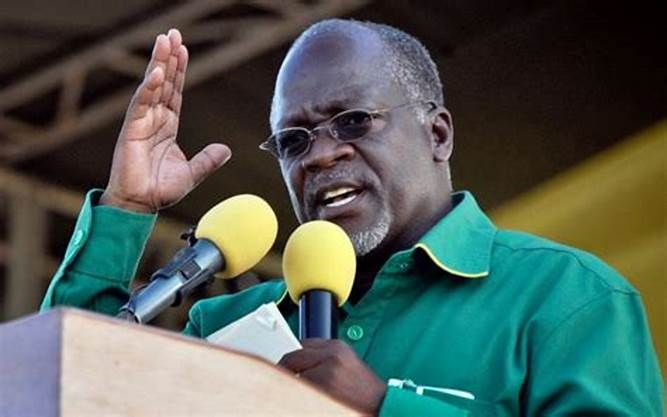
In Africa, leadership and education have long been intertwined, with many of the continent's leaders boasting impressive academic backgrounds. From degrees in law and economics to engineering and medicine, these leaders have pursued education at the highest levels, often shaping their views and policies based on their scholarly experiences.
Here, we highlight 10 of the most educated African leaders, showcasing their academic achievements and the impact of their education on their leadership.
-
Dr. John Pombe Magufuli - Tanzania
- Education: PhD in Chemistry
- Before his presidency, Magufuli served as a teacher and chemist. His scientific background influenced his emphasis on industrialization and infrastructure development during his presidency.
-
Dr. Nana Addo Dankwa Akufo-Addo - Ghana
- Education: Bachelor of Laws (LLB), Master of Laws (LLM)
- Akufo-Addo, a lawyer by training, has focused on legal and institutional reforms in Ghana. His education has informed his commitment to democracy and the rule of law.
-
Paul Kagame - Rwanda
- Education: Military training
- Kagame, while not having formal higher education, underwent military training, which has shaped his leadership style, focusing on security and rebuilding Rwanda after the genocide.
-
Dr. Mokgweetsi Masisi - Botswana
- Education: Bachelor's Degree in Economics, Master's Degree in Social Sciences
- Masisi's background in economics has influenced his policies on economic diversification and social development in Botswana.
-
Alpha Condé - Guinea
- Education: PhD in Law
- Condé's legal education has informed his advocacy for constitutional reforms and democratic governance in Guinea.
-
Dr. Abiy Ahmed - Ethiopia
- Education: PhD in Peace and Security Studies
- Abiy's academic focus has influenced his efforts towards peacebuilding and reconciliation in Ethiopia and the region.
-
Emmerson Mnangagwa - Zimbabwe
- Education: Degree in Law
- Mnangagwa's legal background has shaped his approach to governance and legal reforms in Zimbabwe.
-
Macky Sall - Senegal
- Education: Mining Engineering Degree
- Sall's engineering background has influenced his focus on infrastructure development and economic growth in Senegal.
-
Dr. Hage Geingob - Namibia
- Education: PhD in International Relations
- Geingob's academic background has influenced his approach to diplomacy and international relations, positioning Namibia as a key player in African and global affairs.
-
Cyril Ramaphosa - South Africa
- Education: Law Degree
- Ramaphosa's legal education has informed his policies on governance, economic reform, and social development in South Africa.
These leaders' diverse academic backgrounds have played a significant role in shaping their leadership styles and policy priorities. From science to law, their education has been instrumental in guiding their countries through various challenges and opportunities, highlighting the crucial link between education and effective governance in Africa.